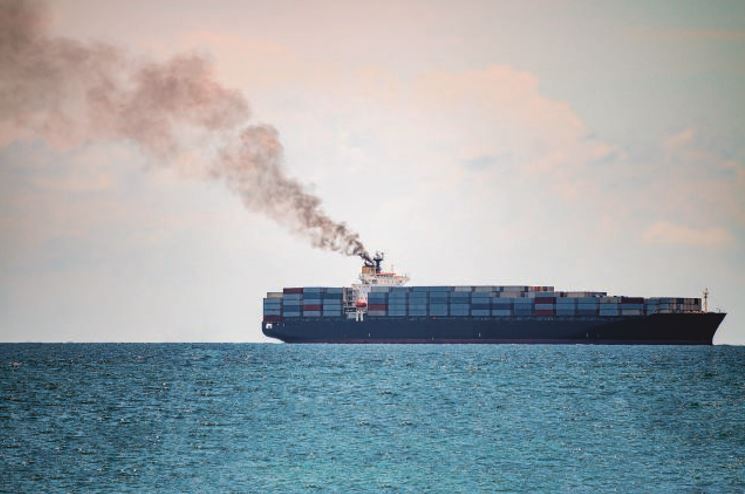
Parties to the United Nations Framework Convention on Climate Change (UNFCCC) have recognised that the convention is unsuitable to address emissions from international shipping. The Paris Agreement, adopted at COP21 in December 2015, is silent about emissions from international shipping. It does, however, expect that “developed country Parties should continue taking the lead by undertaking economy-wide absolute emission reduction targets”. The overall aim of the Paris Agreement is “holding the increase in the global average temperature to well below 2°C above pre-industrial levels and pursuing efforts to limit the temperature increase to 1.5°C above pre-industrial levels”.
Strategy
The International Maritime Organization (IMO) has agreed on a Road Map to develop a Comprehensive IMO GHG Strategy by 2023. The Initial Strategy (IS) was adopted at MEPC 72 in April 2018 with a vision to decarbonise shipping as soon as possible. The IS contains the following important objectives:
-to reduce CO2 emissions per transport work, as an average across international shipping, by at least 40% by 2030, pursuing efforts towards 70% by 2050, compared to 2008; and
-to peak GHG emissions from international shipping as soon as possible and to reduce the total annual GHG emissions by at least 50% by 2050 compared to 2008 whilst pursuing efforts towards phasing them out as called for in the vision as a point on a pathway of CO2 emissions reduction consistent with the Paris Agreement temperature goals.
The issue at hand
Tackling the barriers to transition may be the single most important issue facing the shipping industry. The barriers cut across commercial business practices, which are normally beyond the scope of international regulation.
As the transition is likely to take a generation of ships, it necessitates having a mechanism to facilitate a level playing field in the marketplace for ships of both conventional and novel technological state. This is because freight rates are unlikely to correlate with the cost of operating ships using vastly more expensive fuels as long as cheap fossil fuel alternatives exist.
The IMO decided at MEPC 57 to adopt nine fundamental principles, to which a future market-based measure (MBM) shall adhere by being:
1. effective in contributing to the reduction of total global greenhouse gas emissions
2. binding and equally applicable to all flag States in order to avoid evasion
3. cost-effective
4. able to limit, or at least, effectively minimize competitive distortion
5. based on sustainable environmental development without penalizing global trade and growth
6. based on a goal-based approach and not prescribe specific methods
7. supportive of promoting and facilitating technical innovation and R&D in the entire shipping sector
8. accommodating to leading technologies in the field of energy efficiency
9. practical, transparent, fraud-free, and easy to administer.
Removing the barriers for transition requires new commercial solutions and shared responsibilities between charterers and shipowners. BIMCO will develop the necessary contractual solutions to assist the transition.
Recent report from the Intergovernmental Panel on Climate Change (IPCC) states that meeting the temperature goals of the Paris Agreement requires deep cuts in global GHG reductions before 2030 and carbon neutrality by 2050.
BIMCO’s position
Regulation of GHG for ships in international trade must be agreed at IMO and be transparent, harmonised, and applicable to ships irrespective of the flag they fly.
Any possible GHG regulation for shipping should not regulate the capacity of the world fleet. The objective should be to limit GHG emissions from ships without compromising the shipping industry’s irreplaceable role in the global supply chain.
BIMCO welcomes the IMO Initial Strategy (IS) and its vision and objectives, but believes it is not enough. BIMCO thus supports the objective of net zero carbon 1 for shipping by 2050.
BIMCO realises that in order to make the aspirations of reaching net zero carbon by 2050 a reality, collaborative efforts as well as responsibilities have to be assumed by different stakeholders throughout the community involved in shipping, including shipowners, shippers, charterers, energy providers, fuel suppliers, shipyards and engine makers.
BIMCO believes a global market-based measure (MBM) putting a price on carbon is an essential part of the solution to incentivise investment in and operation of low-carbon emitting ships.
BIMCO believes a global MBM should be established and administered by the IMO and comply with their previously agreed nine principles.
BIMCO considers it advantageous to develop an MBM, which features predictability and stability with regard to carbon price, thus lending itself suitable to be incorporated in commercial contracts.
BIMCO believes that the commercial party responsible for setting the speed and route of a ship should also provide for emissions allowances or credits under an MBM. This means the charterer in case of a time charterparty and the party that commits the ship to the voyage charter in case of a voyage charterparty.
BIMCO believes it is inappropriate for international shipping to be included in national or regional GHG emissions’ regulations.
BIMCO notes that premature retirement of ships could result from retroactive application of unsustainable additional mandatory technical measures. Premature retirement will likely result in significant negative unintended consequences, such as unwarranted removal of needed capacity from the global supply chains and unnecessary additional emissions from building new ships.
BIMCO encourages the reduction of emissions by operational measures, such as speed optimisation and use of the “Just-in-time” principle to convert waiting time at ports into sailing time.
BIMCO is concerned that operational efficiency indices or Carbon Intensity Indicators (CIIs), are potentially misleading on an individual ship basis and not always representative of a ship’s true operational efficiency. It is however hoped that mandatory CIIs will lead to commercial business practices, which lower CO2 emissions for the shipping sector.
BIMCO supports the establishment of an IMO Maritime Research Board to fund innovation, paid for by a mandatory contribution on fuel used by ships.
BIMCO supports the development of a global fuel carbon content standard to facilitate universal certification of marine fuels’ emissions profiles.
Latest News

Meloni and Trump Meet in Washington, Vow to Strengthen Western Ties
“I am 100% sure there will be no problems reaching a deal on tariffs with the EU—none whatsoever,” Trump stressed.

ECB Cuts Interest Rates by 25 Basis Points in Expected Move
The ECB’s Governing Council opted to lower the deposit facility rate—the benchmark for signaling monetary policy direction—citing an updated assessment of inflation prospects, the dynamics of underlying inflation, and the strength of monetary policy transmission.

Current Account Deficit Fell by €573.2ml Feb. 2025: BoG
The improvement of Greece’s current account was mainly attributed to a more robust balance of goods and, to a lesser extent, an improved primary income account

Hellenic Food Authority Issues Food Safety Tips for Easter
Food safety tips on how to make sure your lamb has been properly inspected and your eggs stay fresh.

Greek Kiwifruit Exports Smash 200,000-Ton Mark, Setting New Record
According to data by the Association of Greek Fruit, Vegetable and Juice Exporters, Incofruit Hellas, between September 1, 2024, and April 17, 2025, kiwifruit exports increased by 14.2%.

Easter Tourism Boom: Greece Sees 18.3% Surge in Hotel Bookings
Among foreign markets, Israel has emerged as the biggest growth driver, with hotel bookings more than doubling—up 178.5% year-on-year.

Greece to Launch Fast-Track Tender for Offshore Hydrocarbon Exploration
Last week, Papastavrou signed the acceptance of interest for the two Cretan blocks, while similar decisions regarding the two Ionian Sea blocks were signed by his predecessor

American-Hellenic Chamber of Commerce to Open Washington D.C. Branch
AmCham's new office aims aims to deepen U.S.-Greece economic ties and promote investment and innovation between the two countries
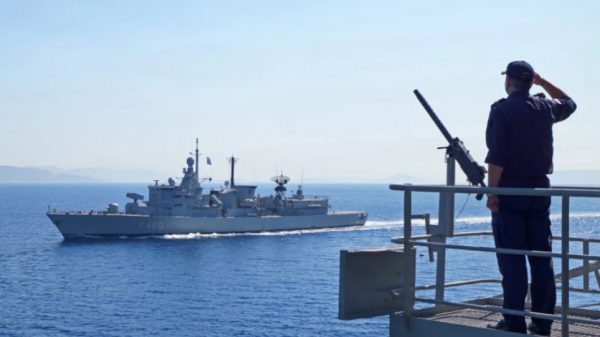
Why Greece’s New Maritime Spatial Plan Is a Geopolitical Game-Changer
This landmark development is more than just a bureaucratic step — it's a strategic declaration about how Greece intends to use, protect, and assert control over its seas
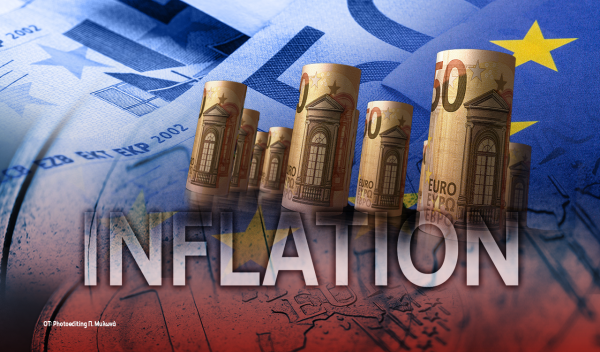
Eurozone Inflation Eases to 2.2% in March
Compared to February, inflation decreased in 16 member states, remained unchanged in one, and rose in ten.








![Πλημμύρες: Σημειώθηκαν σε επίπεδα ρεκόρ στην Ευρώπη το 2024 [γράφημα]](https://www.ot.gr/wp-content/uploads/2025/04/FLOOD_HUNGRY-90x90.jpg)




![Airbnb: Πτωτικά κινήθηκε η ζήτηση τον Μάρτιο – Τι δείχνουν τα στοιχεία [γράφημα]](https://www.ot.gr/wp-content/uploads/2024/07/airbnb-gba8e58468_1280-1-90x90.jpg)













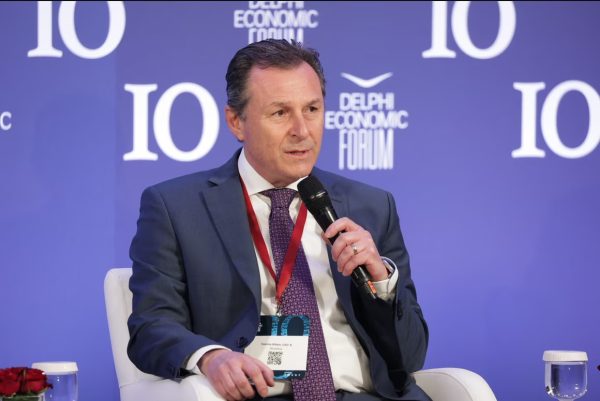

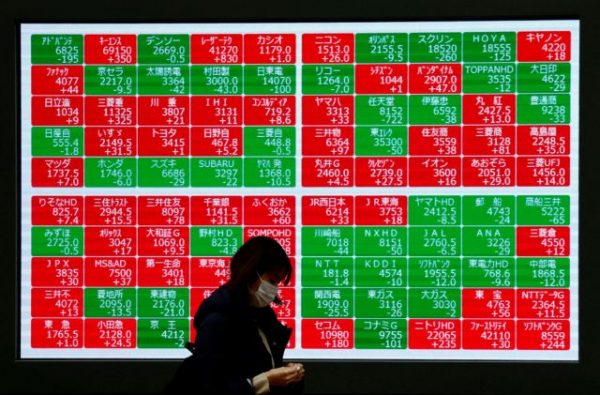
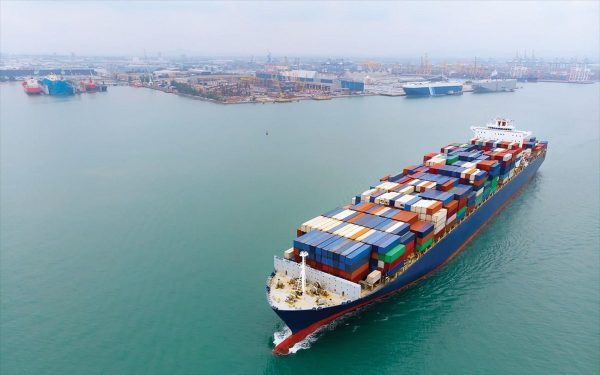







![Airbnb: Πτωτικά κινήθηκε η ζήτηση τον Μάρτιο – Τι δείχνουν τα στοιχεία [γράφημα]](https://www.ot.gr/wp-content/uploads/2024/07/airbnb-gba8e58468_1280-1-600x500.jpg)


 Αριθμός Πιστοποίησης
Αριθμός Πιστοποίησης